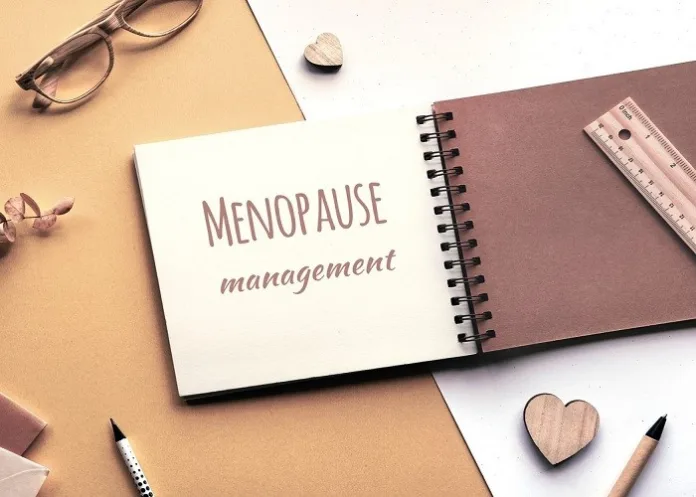Experts have differing opinions on the latest DIY product on the market – a urine test that informs women about which stage of menopause they might be in.
Before the Covid-19 pandemic, pregnancy tests mostly dominated the DIY testing landscape, although a few recent additions, for conditions like HIV and Alzheimer’s, have appeared on pharmacy shelves, albeit with varying levels of confidence from the medical community.
Now, reports TIME, there’s a DIY test for menopause, enabling women to test their urine every other day for a period of 10 days and which detects changing levels of follicle-stimulating hormone (FSH).
Clearblue, the company that makes pregnancy and fertility self-testing kits, said that over the 10-day span, its Menopause Stage Indicator test monitors a woman’s fluctuating FSH levels, and, based on general levels of these hormones calibrated by age, informs her about which stage of menopause she might be in – pre-menopause, early peri-menopause, late peri-menopause or post-menopause.
Many women of menopausal age aren’t aware that their changing bodies, and the symptoms that accompany those changes, like hot flushes, night sweats and irregular menstrual cycles, are a sign of menopause.
Dr Stephanie Faubion, director of the Mayo Clinic Centre for Women’s Health and medical director of the Menopause Society, who is not involved with Clearblue, said: “I have patients who have absolutely no idea what is happening when they are in peri-menopause or menopause and start experiencing a variety of symptoms, from hair loss to night sweats – it seems confusing and scary.”
“From our research, we’ve seen a real need for this product,” said Dr Fiona Clancy, R&D senior director at Clearblue. “Online, menopause is searched 10 times as much as fertility, and two out of three women feel unprepared for the menopause journey.”
But doctors like Faubion, who treat women for mid-life changes, aren’t convinced this knowledge is necessary for navigating the menopause journey.
Menopause is defined as not having periods for 12 consecutive cycles, and before reaching that stage, women can experience varying windows of irregular bleeding in the peri-menopause stage, sometimes lasting for years.
During those times “lab levels of hormones like FSH are fluctuating all over the place, daily”, said Faubion. “I don’t understand what the benefit (of the test) would be.”
She rarely tests women for menopause because hormone levels can vary during an individual woman’s cycle, as well as among different women.
As FSH levels increase, oestrogen also rises, and together they prompt the ovaries to release the egg each cycle during ovulation.
As women approach menopause, oestrogen levels start to drop as the ovaries begin to shut down, and in response, the pituitary gland, which regulates FSH levels, attempts to stimulate the ovaries to produce more FSH and in turn more oestrogen.
But these levels of FSH are notoriously wide-ranging, not just among individual women during their cycle, but among different women as well.
That’s why instead of depending on lab tests, doctors like Faubion rely on symptoms in a patient’s report.
“The diagnosis of menopause and its stages are clinical diagnoses, and we treat by symptoms. So I’m unclear about the usefulness of the test,” said Dr Samantha Dunham, co-director of the centre for midlife health and menopause at NYU Langone Health, who is also not involved with Clearblue.
Dunham relies on blood or urine tests to check hormone levels during mid-life changes only among women who no longer have regular periods, because they have had their uterus removed either through a hysterectomy or endometrial ablation, or are using an intrauterine contraceptive device that stops regular menstrual cycles.
Because these women don’t have periods, doctors can’t use changes in the cycle as an indicator for potential peri-menopause symptoms, and turn to lab tests to understand what’s happening with the ovaries and hormone levels.
Questioning value of test
For most other women, however, even if they use the test to learn, say, that they are in peri-menopause, the results still wouldn’t tell them when they will actually hit menopause, said Dunham.
What’s more urgent for women during this time is addressing their symptoms, from night sweats to hot flushes and irregular bleeding.
“These numbers always have to be interpreted in the context of the patient, and not just as a plus-minus test,” she said. “A pregnancy test is a plus-minus test – you’re pregnant or you’re not. FSH is not a plus-minus test.”
However, both Faubion and Dunham agree women are armed with less support and education about menopause than they are about the start of their periods.
“I think it often catches people by surprise, and happens earlier than they think,” said Dunham.
TIME article – There’s Now an At-Home Menopause Test, But Does Anyone Need It? (Open access)
See more from MedicalBrief archives:
Hormone therapies best for menopause symptoms, new review finds
Post-menopause testosterone patch in the pipeline
HRT should be given earlier as menopause ‘reshapes the brainʼ – Nature Scientific Reports
Longer oestrogen exposure reduces depression risk in menopause

